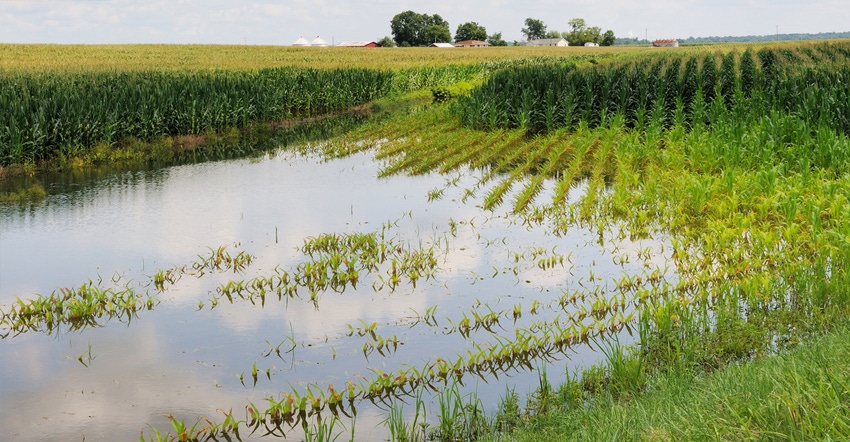
Mother Nature has unleashed her rainy fury on the Northeast and Mid-Atlantic.
Reports from the National Weather Service show some areas with more than a foot of rain over the past week, from southern Maryland through Pennsylvania and into New York state, with a daily chance of thunderstorms this week.
Reports from Cooperative Extension agents show the effects could be felt for a long time after things finally start to dry out.
Jeff Graybill, Penn State Extension educator in Lancaster County, Pa., says he is concerned about nutrient leaching and disease.
"I would expect to see nitrogen loss from leaching, which may bring on premature yellowing and take the top end yields off of many fields," Graybill says. "Also, flooded soils and high humidity tend to bring on disease, which can be quite serious, so I would expect to see more disease on the corn.
"Tobacco and many vegetables also can quickly be affected by disease in this type of weather and I expect to see more fields of things like pumpkins, tomatoes, tobacco and other vegetables attacked by disease. In some cases they can be sprayed with fungicides to slow down the rots and disease, but generally they cannot be totally stopped once they are started, especially if the humidity continues."
Del Voight, Penn State Extension agent covering Lebanon County, says several farmers have reported damage to their crop insurance agents.
"These issues are in flood-plain areas. Sinkholes are also opening up as well. I would expect higher incidence of diseases in all crops with increased moisture enhancing disease infections," he says. "We continue to struggle to control weeds as they continue to germinate with frequent rains."
Chuck Shuster, University of Maryland Extension agent in central Maryland, says some areas received up to 16 inches of rain.
"It's really affecting about every crop possible," Shuster says. "Vomitoxin numbers are way too high in wheat. Test weights with wheat are way off. A majority of wheat for central Maryland is not really good."
He says full-season soybeans are faring better than short-season varieties. Corn stands are largely uneven, he says, as some farmers had to replant a lot of the crop earlier this season due to a wetter-than-normal spring.
"I see the potential for there being a lot of claims this year," he says.
About the Author(s)
You May Also Like






